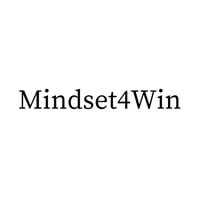„Your story isn’t over—it’s just getting deeper.“ Alexandra Junghans is a transformation coach for...
Interview with Barbara Gromer
"A small first step that feels right can be the beginning of something big.'"
Barbara Gromer is an HR interim manager and consultant specializing in restructuring, transformation, and modern HR practices in nationally and internationally operating mid-sized companies. She brings nearly 20 years of experience in senior HR roles, including at the executive level. As a business lawyer, certified systemic coach, business mediator (IHK), and AI manager (IHK), she combines professional expertise with a keen sense for people and organizations. Her work stands for clarity, empathy, and effective change with integrity.
Barbara, how clear was your vision when you took the leap from being an executive to becoming self-employed and how has it evolved over time?
After nearly 20 years in senior HR roles, often in internationally active and mid-sized companies, it became increasingly clear to me: I wanted to use my expertise differently, more focused, more impactful, and with greater independence.
From the beginning, my vision was shaped by the desire to support companies through change with a clear sense of what’s feasible and a deep respect for the people driving those processes. I no longer wanted to organize HR work from the inside, but rather to enable it from the outside with a fresh perspective, strategic thinking, and the necessary experience for sensitive phases like transformations, restructurings, or cultural shifts.
What changed over time is that my vision became more concrete and more confident. I realized how valuable my broad skill set is and how diversely I can apply it. It ranges from in-depth HR experience at all levels to coaching, workshop facilitation, mediation, and agile methodologies. And I’ve learned that this very combination of structure, empathy, and execution strength is exactly what my clients value most.
Today, I support companies not only as an HR expert, but often also as a sparring partner for executives and senior leadership with the goal not just to solve problems, but to actively shape the future.

Barbara Gromer
HR Interim Manager and Consultant specializing in restructuring, transformation, and modern HR practices.
She brings nearly 20 years of experience in senior HR roles, including at executive management level. As a business lawyer, certified systemic coach, business mediator (IHK), and AI manager (IHK), she combines professional expertise with a clear eye for people and organizations. Her work stands for clarity, empathy, and effective change with integrity.
Transformations often bring uncertainty. What communication principles help you guide teams or clients through complex change processes?
When it comes to communication principles, for me it’s clearly: transparency, empathy, and consistency.
I firmly believe that people can handle uncertainty well as long as they know where they stand, that they can trust their leaders, feel heard, and see that words and actions align. That’s why in communication, I pay special attention to three things:
-
Involve people early
-
Clearly state what is known—and what is not (yet)
-
Dialogue over monologue: active listening isn’t a luxury, it’s a leadership skill
In times of change and transformation, one thing is essential to me: people need orientation and trust especially when the framework is shifting. Clear communication, a transparent approach, and genuine listening are the foundations I rely on to guide teams effectively through uncertain phases.
One example: In a previous role, I had the opportunity as an HR lead to help shape the fundamental transformation of a company. This included a restructuring that affected a significant number of employees.
From the employer side, it was important to me not to beat around the bush. We communicated the seriousness of the situation openly and, after the initial layoffs, we deliberately explained the principles behind the selection process. It was essential that employees understood the criteria. For those leaving, it was important to accept the termination internally. For those remaining, it was a critical step in rebuilding a sense of psychological safety and maintaining motivation.
In these situations, I also consciously made time for individual conversations: employees and managers came to me with concerns, fears, and doubts, and they always found my door open. I communicated honestly and transparently when I couldn’t rule out a layoff, but I also promised: You will get clarity in time, and I will support you however I can. Many people told me this open approach helped them feel less alone during an emotionally charged period.
For me, change is by no means just a matter of process. It’s also about attitude. And I am responsible for my own mindset, which ultimately radiates outward to the team. It’s about walking through the unknown together with respect and responsibility.
"For me, change is by no means just a matter of processes. It’s also about attitude and that radiates outward."
Was there a specific moment or challenge in your career that deeply shaped or redefined your path?
I’ve always been fascinated by the deeper layers of communication: how people think, how they make decisions, how they experience and handle conflict. That interest naturally drew me early on to coaching and mediation. A real turning point came when I decided not to just keep that interest on the side, but to pursue it systematically. I fulfilled that dream through training as a systemic coach at the Academy of the University of Education Heidelberg and later as a certified business mediator (IHK).
These trainings fundamentally changed my professional mindset and validated what I had previously done more intuitively. Afterward, I knew with certainty: I want to actively integrate this mindset of active listening, enabling perspective shifts, and guiding people from problem-focus to solution-orientation into my work. And that’s exactly what I do today. Whether it’s transformation processes, leadership issues, or tense team dynamics, it’s never just about structures and processes. It’s always also about attitude and dialogue. This insight has had a significant impact on the direction of my work. Interestingly, I’ve found I can make a much greater impact in this regard as an external consultant or interim manager than I could as an internal employee.
What helps you stay focused and resilient day-to-day are there any routines, rituals, or mindset tools you recommend?
I’m a big fan of clear priorities, small breaks, and real shifts in perspective.
My days start with a quick check-in: What’s truly important today? I try not to do everything at once but focus on what matters most. Movement, positive social interactions ideally rounded off with a good meal and music all help me clear my mind. And sometimes, it’s as simple as this: humor. Being able to laugh at myself in turbulent times is, for me, the best form of resilience. That actually works great within teams too especially when navigating challenging phases together.
What role do soft skills play today in the success of people and organizations?
Soft skills play a central role and will become even more critical in the future. In a constantly changing world, it’s not just technical expertise that counts. It’s relationship and self-leadership skills that make the real difference. We’re talking about communication, conflict resolution, empathy, reflection, and decisiveness. These are no longer “nice-to-haves”. They are true success factors. I’ve even seen cases where they’ve been almost like “survival skills,” especially in terms of resilience during tough times.
The good news is: soft skills can be developed. You don’t have to change everything at once. It’s enough to start small. For example, I can consciously hold back in a conversation and just listen without judging. Or I can ask myself at the end of the day: What did I learn today about myself or others?
Growth happens where I’m willing to accept feedback, reflect, and stick with it, even when it’s uncomfortable. Conversations with others, coaching, or team reflection sessions are all practical ways to strengthen soft skills in everyday life.
From a company’s perspective, investing in employees’ soft skills pays off doubly: teams with high emotional competence are more resilient, innovative, and simply more human in their interactions. These qualities are becoming increasingly important for retaining high-performing professionals and leaders over the long term. Such teams have a positive influence on the entire organization and that contributes significantly to a positive corporate culture. And a strong culture, in turn, attracts exactly the kind of motivated talent companies are looking for.
Visit Barbara’s expert profile now to learn more about her expertise, her journey into self-employment, and her offerings as a sparring partner for transformation and growth.
What message would you like to share with people who are at a turning point in their careers and are thinking about taking a new path?
I often meet coachees in this exact situation: people who are successful on paper but still feel a certain dissatisfaction with where they are. In those moments, it’s important to listen to your inner voice, even if it’s quiet. Turning points often feel uncertain at first, but that’s where their potential lies: something old can come to an end, and something new can begin. That may feel unfamiliar at first.
My advice to anyone in this situation: Talk about your idea, no matter how crazy or unrealistic it may seem. Find people in your circle of friends, family, or broader network who will reflect openly and honestly with you. Ideally, these are people you look up to in some way at least in areas that are central to you. These conversations often help uncover blind spots and build courage. They can also reveal entirely new perspectives that might lead you in an exciting new direction you hadn’t considered before.
Even a short coaching process, just a few sessions, can be extremely valuable in sharpening your orientation, evaluating alternatives, or taking a conscious next step. It doesn’t have to be a giant leap. But a small first step that feels right is often the beginning of something big. I’ve seen that happen many times with my coachees. They’ve shared that even a few focused coaching sessions gave them clarity on their situation and helped them take the right next step for them.
And that’s what it’s all about: taking that first small step. The rest often unfolds as you move forward.
****
Stay up to date with fresh insights and expert tips! Subscribe now so you never miss a new post.
Never miss a thing!
